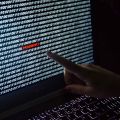What is doxing
"Doxing" (derived from "docs"/"dox", abbreviation of the English word "documents") refers to the collection and publication of personal data on the Internet with various, sometimes criminal intentions.
Current case
Immediately after the illegal publication of private data on the Internet became known on January 4, 2019, Interior Minister Herbert Reul ordered that the persons concerned be informed directly. "This is criminal and an attack on privacy," said Reul. In North Rhine-Westphalia, the private data of a total of 154 people had been published on the internet. 137 of them are federal and state politicians, including four members of the state government. "It is frightening and worrying for everyone when their private data is disseminated on the internet without authorization. I am therefore pleased that the investigations have led to the rapid apprehension of the perpetrator," said Minister Reul.
The case makes it clear that people's security must now be guaranteed not only in the real world, but also in the virtual world. In addition to the security authorities, every individual can also help to protect their data. This starts with a secure password.
Doxing can affect anyone.
In fact, it can happen to anyone. Even large companies, although they are generally aware of the particular problem, are not immune to falling victim to data theft - which also includes their customers' data.
However, even if data theft cannot be completely prevented, it is up to every user to make it more difficult for the perpetrator to access personal data and to minimize the impact. After all, the biggest problem for user data security is the users themselves. This starts with the choice of passwords: A poorly chosen password, such as the number sequence "123456", is still one of the favorites on the list of recurring security shortcomings. Passwords consisting of your own name or that of a family member, even in combination with a special character or a number - data security looks different. Careless users themselves pave the way for so-called data theft. The perpetrators make use of tools that automatically try out every possible combination of characters. Once the hacker has the access data, if the user uses the same password for all online channels (such as Facebook, Twitter, Instagram and eBay), it is now easy for them to access these services too and obtain further personal data.
Is doxing a new phenomenon?
It has always been possible to gather all freely accessible information when researching a person. Before Facebook, Google and the like, the freely accessible sources from which materials could be collected were rather sparse. Today, it only takes a few "clicks" to find out almost everything about individuals, especially public figures. With "doxing", these findings are also published for various reasons.
Who does "doxing"?
Through so-called "social engineering", the perpetrators collect information about people online. The motives can vary. For example, the perpetrators use the information obtained to change accounts in social networks and can discredit or even blackmail the data owners. In the vast majority of cases, these acts constitute criminal offenses.
Data theft - in legal terms, this usually involves spying on data in accordance with Section 202a StGB:
"(1) Anyone who gains unauthorized access for themselves or another person to data that is not intended for them and that is specially secured against unauthorized access, by overcoming the access security, shall be punished with imprisonment of up to three years or a fine.
(2) Data within the meaning of paragraph 1 are only those that are stored or transmitted electronically, magnetically or otherwise not directly perceptible".
